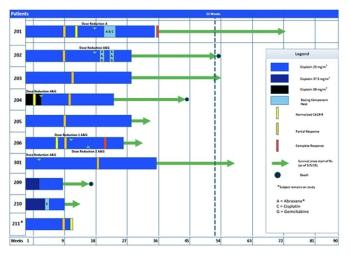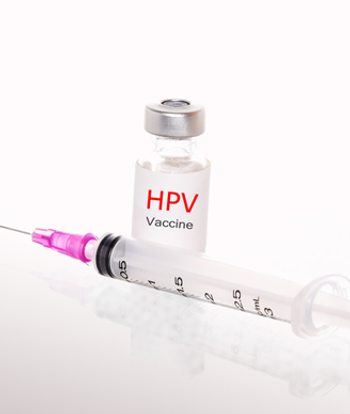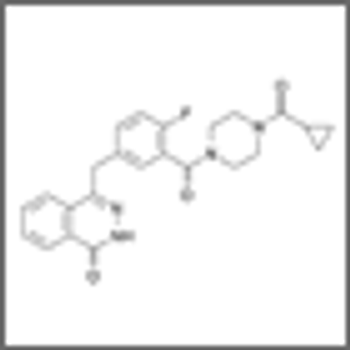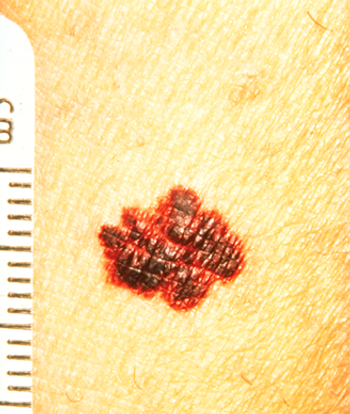
This video examines phase II results of a single-arm trial that tested checkpoint inhibition plus the IDO–pathway inhibitor indoximod in patients with melanoma.

Your AI-Trained Oncology Knowledge Connection!


This video examines phase II results of a single-arm trial that tested checkpoint inhibition plus the IDO–pathway inhibitor indoximod in patients with melanoma.

This video reviews results of the phase II CHRONOS-1 trial, a single-arm study evaluating the investigational agent copanlisib in patients with relapsed or refractory indolent non-Hodgkin lymphoma.

In this interview we discuss the use of CTCs and circulating tumor DNA for prognosis and disease monitoring in patients with breast cancer.

This video highlights preclinical activity of a novel FGFR inhibitor that has been tested alone and in combination with antihormonal therapy in breast cancer cell lines.

An experimental compound known as G100 may be a potentially viable agent for local control of metastatic soft tissue sarcomas.

The combination of an intratumoral injection of CVA21 and ipilimumab has demonstrated durable response with minimal toxicity in patients with advanced melanoma.

We spoke with Dr. Julie Brahmer about how survival rates are starting to improve with the use of nivolumab in non-small cell lung cancer.

In this interview, we speak with Dr. Robert Ferris about the results from the CheckMate-141 study, which investigated the efficacy of nivolumab in head and neck cancer.

Patients with metastatic Merkel cell carcinoma treated with pembrolizumab (Keytruda, Merck) as a first-line therapy had durable responses in a phase II clinical trial.

Results of the I-SPY 2 TRIAL found that the neoadjuvant combination of T-DM1 plus pertuzumab resulted in a greater benefit to HER2-positive breast cancer patients compared with paclitaxel plus trastuzumab.

The use of a noninvasive colorectal cancer screening test called a multi-target stool DNA test (mt-sDNA) detected the disease in patients who had previously avoided more invasive screening procedures.

Researchers have identified two species of bacteria linked with periodontal disease in healthy individuals that are associated with a risk of developing pancreatic cancer.

NEW ORLEANS – A new type of antibody-drug conjugate (ADC) platform may pave the way to help patients with ovarian cancer and non-small cell lung cancer.

Results of a trial involving a CD4-based immunotherapy has shown activity in patients with metastatic solid tumors, according to phase I data presented at the AACR Annual Meeting.

Prostate cancer patients who kept up a moderate to high level of physical activity had better survival prognoses compared with their more sedentary counterparts.

Immunotherapy treatment with nivolumab significantly improved survival among patients with recurrent or metastatic head and neck squamous cell carcinoma.

Three commercial tests that measure levels of PD-L1 on tumors showed similar results on non-small cell lung cancer (NSCLC) tumor samples.

New data indicates that entrectinib has clinical activity in patients with a variety of cancers with gene alterations in NTRK1/2/3, ROS1, or ALK who had never been treated with targeted agents.

More than one-third of patients with advanced melanoma were still alive 5 years after starting treatment with the anti-PD-1 immunotherapy nivolumab, according to long-term phase I data.

Metformin, a common drug for type II diabetes, did not improve the survival of patients with pancreatic ductal adenocarcinoma.

This slide show features some of the top highlights from the 2015 American Association for Cancer Research (AACR) Annual Meeting.

MM-302 showed encouraging efficacy results and a manageable safety profile in heavily pretreated HER2-positive metastatic breast cancer patients.

The HPV 16/18 vaccine protects women from cervical, anal, and oral HPV infections that can lead to cancer, including some women previously exposed to HPV.

Inhibition of PD-1 with pembrolizumab was well tolerated and showed promising survival results in a large phase I trial of patients with advanced non–small-cell lung cancer (NSCLC).

In this interview with ONCOLOGY Editor-in-Chief Nancy Davidson, MD, we dive into the “gray area” of breast biopsies and how the oncology community can meet this challenge. Dr. Davidson, AACR’s president-elect, also discusses the changes she has seen during her career with regard to how cancer patients are treated and looks forward during this optimistic time in treatment and research.

Men with metastatic castration-resistant prostate cancer that had mutations in DNA repair genes were more likely to respond to the PARP inhibitor olaparib.

Combination treatment with the PARP inhibitor olaparib plus the PI3K inhibitor BKM120 showed a benefit in subsets of breast cancer and ovarian cancer patients.

Treatment with nivolumab and ipilimumab in patients with advanced melanoma produced significantly higher rates of response and progression-free survival compared with ipilimumab alone.

In an ongoing study, the immunotherapy MPDL3280A continues to be well-tolerated and to show signs of activity in triple-negative breast cancer patients.

Women who spend less time eating each day and an increased amount of hours fasting overnight had a decreased risk of breast cancer.